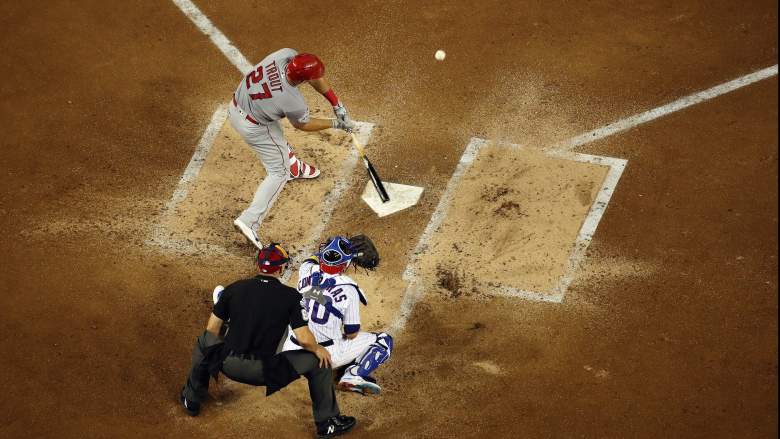
Cleveland will host baseball’s biggest names on Tuesday night for the 90th edition of the MLB All-Star Game as the top players in the American League and National League go head-to-head.
Eight-time All-Star and Houston Astros ace Justin Verlander will draw the start for the American League, having posted a 10-4 record and 2.98 ERA this season. For the National League, it will be the Dodgers Hyun-Jin Ryu on the hill, who boasts a 10-2 record and an MLB-leading 1.73 ERA.
The game is set to get underway at 7:30 p.m. ET from Progressive Field.
But as the players take the field for the Midsummer Classic, many wonder if anything is actually at stake in the game. Other than pride and a bit of extra cash, the answer is no. However, that hasn’t always been the case.
From 2003-2016 the All-Star game was used as a mechanism to decide home field in the World Series. The MLB implemented the move following the 2002 All-Star Game in Milwaukee that ended in a 7-7, 11-inning tie. Both teams ran out of pitchers. Then-commissioner Bud Selig and the MLB introduced the “This Time It Counts” slogan for the 2003 edition of the All-Star game.
“This energizes it. This gives them something to really play for,” Selig said after owners approved the change by a unanimous vote in 2003. “People pay a lot of money to see that game. They deserve to see the same intensity they see all year long. Television people pay a lot of money for the game. It was not and should not be a meaningless exhibition game.”
The American League won 11 of 14 All-Star Games that determined home-field advantage before it was changed in the latest CBA.
What Kind of Money Is at Stake in the MLB All-Star Game
While home field is no longer on the line, players do earn some extra dough if they win the MLB All-Star Game. According to FOX Business, players on the winning team will split a $800,000 purse among all 32 members of its active roster, which comes out to $25,000 per player. That’s an increase of $5,000 from a year ago.
In addition to that, players who garnered the most votes at their position brought home a $15,000 bonus, as Forbes Sean Packard explained. Second place vote-getters earned $5,000 each, while third place receiver $2,500. Each player also gets six tickets to the All-Star Game and the Home Run Derby, first-class airfare and hotel accommodations, meal allowances, a $1,000 cash stipend and a gift from their respective league.
In the Home Run Derby on Monday night, Mets rookie Pete Alonso earned a $1 million bonus — almost double his base salary of $555,000.
READ NEXT: Clayton Kershaw Stats: Dodgers Pitcher in Elite Company With Strikeout Feat
Comments
Does MLB All-Star Game Mean Anything? What Winning Team Receives